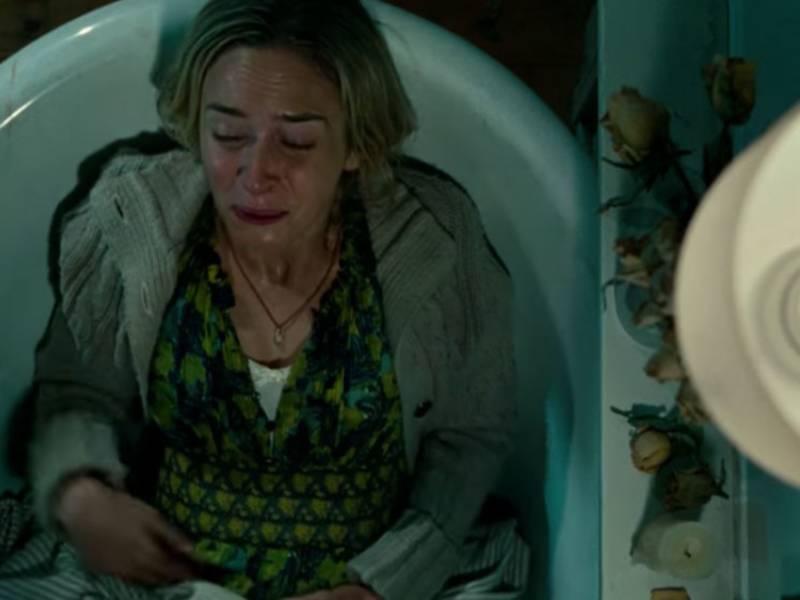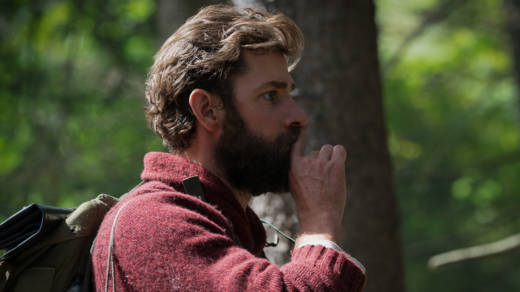Limitations are a horror filmmaker's best friend, whether it's confining characters to a haunted house, constructing a forest menace out of shaky "found footage," waiting until the third act to show the shark, or starving the senses in order to heighten them. A Quiet Place is about a wave of blind, deadly arachnid creatures that are sensitive to sound — imagine if the aliens in the Vin Diesel film Pitch Black were deposited on earth, more or less — but it's really about isolating an effect and custom-fitting a story around it. When a single utterance or unintended noise means quick and certain death, the audience will hang on every bump of the soundtrack, like a heart patient eyeing an EKG.
There are high-minded ways to interpret A Quiet Place, which develops into a affecting metaphor for the perils of parenthood, but it's effective primarily as a back-to-basics statement of genre fundamentals. We're so accustomed to being pummeled into submission by studio soundtracks that the deprivation here has a clarifying effect, reminding us of what's possible when sound and music is carefully placed. That the film comes from Platinum Dunes, the production company of Transformers director Michael Bay, feels like an act of penance from Hollywood's chief supplier of ear-splitting rackets.
The unlikely frightmaster responsible for A Quiet Place is John Krasinski, best known as Jim from The Office and less well-known for Brief Interviews with Hideous Men and The Hollars, his mediocre forays into independent filmmaking. Krasinski starred in Bay's thriller 13 Hours: The Secret Soldiers of Benghazi, and Bay has returned the favor by allowing him to merge the quiet, character-driven qualities of his indie films with the sledgehammer impact of a mainstream shocker. Krasinski lands on a loud-quiet-loud formula akin to '90s alternative rock: When the chorus kicks in, the jump-scares really pop.
By Day 89 of the invasion, an entire planet of loudmouths has seemingly been winnowed down to one family wandering through a Cormac McCarthy apocalypse. The Abbotts—Lee (Krasinski), Evelyn (Emily Blunt), and their three children — are first shown tiptoeing around a general store in bare feet, culling medications and other essentials they need for their journey. (Sorting through pills bottles, in this context, is like dangling your toes in piranha-infested waters.) After a deadly encounter, the film cuts to roughly a year later, when the family is holed up in a farmhouse and expecting a new addition.

Bringing a newborn into a world where noise can kill brings another dimension to the phrase "planned parenthood," and there will no doubt be arguments over the wisdom of Lee and Evelyn's decision, just as there are over victims running up the stairs in a slasher film. Rest assured, the Abbotts have thought it through completely, but even the best-laid plans can't account for, say, an errant nail on the basement stairs or an ill-timed plumbing issue. And once the creatures' attention is roused, they have a tendency to stick around until they find the source and tear it to shreds.

9(MDAxOTAwOTE4MDEyMTkxMDAzNjczZDljZA004))

